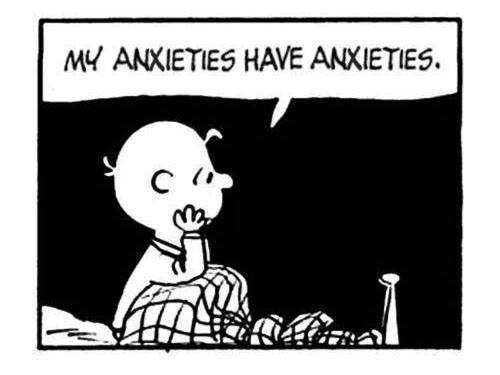Overcoming Anxiety

Anxiety happens when we perceive a threat - a problem with your boss, a big project, waiting for the results of a medical test, driving home in rush-hour traffic, an upcoming event. For most people, feelings of anxiety come and go, only lasting a short time. For others, anxiety may be more pervasive causing challenges in daily living.
Symptoms, include: feeling nervous, irritable, or on edge, having a sense of impending danger, panic or doom, anticipating the worst, increased heart rate, breathing rapidly (hyperventilation), sweating, and/or trembling, feeling weak or tired, difficulty concentrating, difficulty sleeping, gastrointestinal (GI) problems.
Anxiety can also affect behavior - withdrawing from friends and family, unable to go to work, or avoid certain places. While avoiding situations can give you short-term relief, the anxiety often returns the next time you’re in the situation. Avoiding it only reinforces the feeling of danger and never gives you a chance to find out whether your fears are true or not. Next time you are feeling anxious, try one or more of these tips.
- Question your thought pattern - Negative thoughts can take root in your mind and distort the severity of the situation. Challenge your fears, ask if they’re true, and see where you can take back control.
- Practice focused, deep breathing - Try breathing in for 4 counts and breathing out for 4 counts for a few minutes. By evening out your breath, you’ll slow your heart rate which will help calm you down.
- Use aromatherapy - Scents like lavender, chamomile, and sandalwood can be very soothing. Aromatherapy is thought to help activate certain receptors in your brain, potentially easing anxiety.
- Go for a walk or do 15 minutes of yoga - Sometimes, the best way to stop anxious thoughts is to walk away. Taking some time to focus on your body and not your mind may help alleviate symptoms.
- Identify and learn to manage your triggers - Sometimes they can be obvious, like caffeine, alcohol, or smoking. Other times they can be less obvious. Long-term problems, such as financial or work-related situations, may take some time to figure out — is it a due date, a person, or the situation? This may take some extra support, through therapy or with friends.


